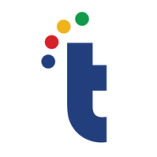GitLab vs GitHub: Which Platform Should You Pick in 2025?
 Technource
Technource
In 2025, version control is no longer just about tracking changes in code—it’s about enabling faster delivery, stronger collaboration, and smarter automation. With DevOps now a core part of modern development strategies, choosing the right platform has never been more important.
Two major platforms dominate the space: GitHub and GitLab. While both are incredibly powerful, they serve slightly different purposes depending on your team structure, goals, and long-term strategy.
So, which one is right for you?
Why This Decision Matters More Than Ever
Today’s software development isn’t just about pushing code—it’s about managing pipelines, security, collaboration, and delivery—all in one place.
That’s why the GitHub vs GitLab conversation matters. Whether you're building an internal tool, a mobile app, or a SaaS product, the right platform can streamline your processes and prevent bottlenecks down the road.
GitHub: Flexible, Popular, and Developer-Friendly
GitHub is one of the most widely adopted version control platforms in the world—and it continues to evolve.
Why teams love GitHub:
GitHub Actions enables native CI/CD with fast setup.
Its UI is intuitive and beginner-friendly.
It has deep integrations with popular tools like Slack, Trello, and VS Code.
GitHub boasts the world’s largest developer community.
GitHub is ideal for startups, small dev teams, and open-source projects that value speed and collaboration.
GitLab: All-in-One DevOps Platform
GitLab offers a more integrated approach by packaging DevOps tools directly into its platform. Everything—from source control to CI/CD, security scanning, and project management—is built-in.
Why GitLab stands out:
Built-in CI/CD pipelines, code quality checks, and security tools.
Project management features like Kanban boards and milestones.
Great for larger teams that want to reduce reliance on third-party tools.
Designed for DevSecOps and enterprise environments.
If your project demands tighter control over deployments, audits, or security, GitLab is a strong choice.
Which One Is Better for Mobile App Development?
If you're working with a custom mobile app development company, the right DevOps platform depends on your app’s complexity and growth plan.
GitHub is better suited for MVPs, fast prototyping, and projects involving external contributors.
GitLab is a better match for long-term app development with automated pipelines and stricter security needs.
Whether it’s continuous integration or app versioning, aligning your version control tool with your app development process is critical.
Quick Comparison: GitHub vs GitLab
| Feature | GitHub | GitLab |
| CI/CD | GitHub Actions | Built-in, mature |
| Security | External integrations required | Native scanning tools |
| DevOps Lifecycle | Partial (via apps) | Full DevOps + Security |
| Community Support | Very large | Smaller but growing |
| Ideal For | Startups, open-source teams | Enterprises, secure development |
Final Thoughts: What Should You Choose in 2025?
There’s no universal answer—it depends on your team’s needs.
Choose GitHub if:
You want ease of use, flexibility, and a vibrant dev community.
Your project requires quick setup and wide tool integrations.
Go with GitLab if:
You prefer an all-in-one DevOps solution.
You need built-in security and enterprise-scale automation.
In the end, the right platform should align with your development workflow, team size, and product vision.
Subscribe to my newsletter
Read articles from Technource directly inside your inbox. Subscribe to the newsletter, and don't miss out.
Written by

Technource
Technource
Technource is a top-rated Website, Mobile App, Custom Software Development Company in the USA (Delaware), India (Ahmedabad & Jaipur), UAE(Dubai), Malaysia, and Canada.